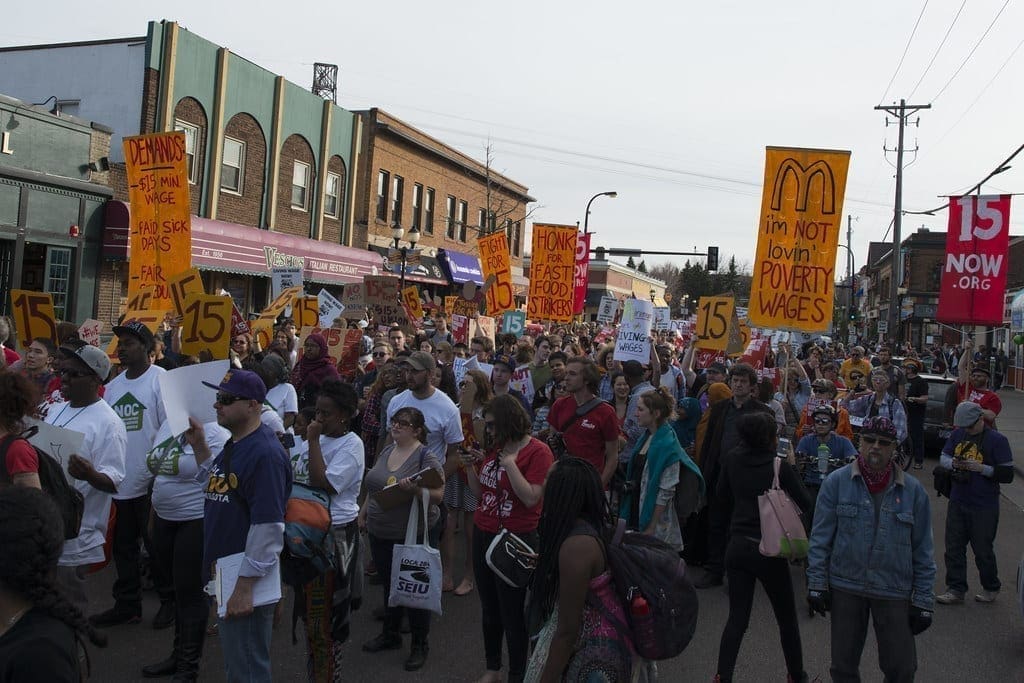The $15 minimum wage discussions look like they’re here to stay.
2020 Democratic presidential candidates have thrown their support behind the McDonald’s employees striking for a $15 minimum wage and union rights. Even freshman congresswoman Rashida Tlaib joined workers last month in Detroit to celebrate their cause. Many of the protestors complained about their measly pay raises and their precarious financial situations.

Unions are a natural constituency of the Democratic Party. According to Open Secrets, unions contributed over $60 million to Democratic candidates in 2018, while they only donated nearly $10 million to Republicans. It makes sense that Democrats would try to appeal to them with minimum wage increases. Government-sponsored unions usually benefit from government privileges that shield from forces in the labor market, such as younger and unskilled laborers who are willing to work for less. That being said, none of the concerns driving these minimum wage protests should be callously dismissed.
Many workers face precarious economic prospects due to the high costs of living and stagnant economic standards around them. Many people have to work multiple jobs to make ends meet and take unconventional routes of employment. For those with stable jobs in white-collar sectors, this kind of struggle seems foreign. However, this is becoming the norm for the working class around the nation. None of this is the failure of the free market, however. It’s the result of government policies that make it both more difficult for people to join the workforce and increase the overall cost of living. In a genuine free market, both unionized and non-union workers can become more prosperous without having to turn to the government for policies that benefit one group at the expense of the other.
That being said, policies like the $15 minimum wage are not a serious answer to these problems. In fact, implementing a $15 minimum wage will only enhance certain problems we already see affecting younger workers. It really boils down to supply and demand. When the government imposes a price floor well above the market rate, businesses respond in kind by laying off workers or reducing their employees’ work hours. In some cases, more technologically advanced companies will transition to automation. Most companies can’t handle these increased labor costs, so they’ll have to cut back on their workforce or find other ways to avoid more expensive labor. In each scenario, workers—especially unskilled ones — get the short end of the stick.
Instead, let’s look at another way of solving this issue. The U.S’s competing jurisdictions allow diversity in terms of state policy — from taxation to regulatory matters. States, not the federal government, can lead the way by rolling back bureaucratic red tape and making it easier to build homes by easing land-use restrictions. The common theme in all of these reforms is the decreased presence of the state. Having the federal government try to “save” workers through a $15 minimum wage represents another usurpation of federal power in the otherwise private affairs of business.
Additionally, it will create distortions in the labor market at a national level. Even if we disagree with minimum wage laws on a policy basis, this kind of legislation should only be implemented at the state and municipal levels. At the very least, we then have a State A vs. State B comparison to reference when discussing the effects of such policies.
However, top-down policies that are not rooted in economic logic are a toxic cocktail that could negatively impact millions of Americans. Americans should look to deregulation, not state control, as the answer to the problems workers currently face in America.

























